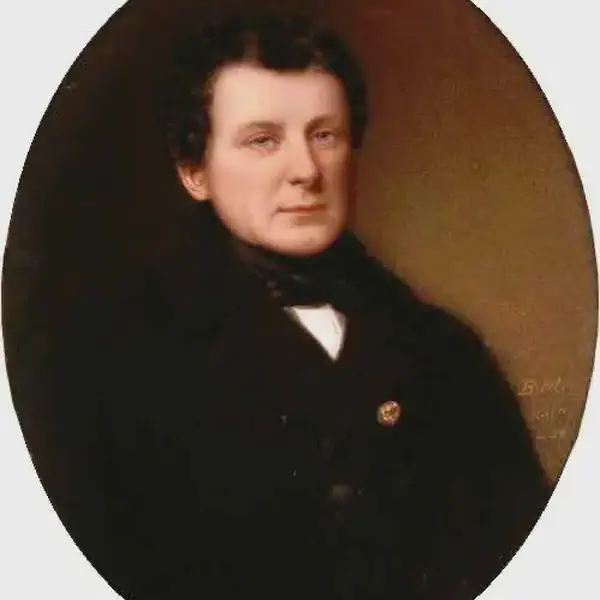
Daniel O'Connell and the Young Irelanders Party Split
July 28, 1846
During the 1830’s Daniel O’Connell campaigned to attempt to repeal the Act of Union between Ireland and England which had resulted in the loss of many basic civil rights for Irish Catholics. He formed The Repeal Association in Ireland in 1840. Because of his Parliamentary efforts, some rights were given back to the Catholics via the Reform Act of 1832, the Tithe Act Reform of 1838 and the Irish Poor Law and Municipal Reform Act. But his ultimate goal of repeal of the Union so that an Irish Parliament could make domestic laws for Ireland did not occur. Various Tenant Rights Acts were also defeated. His original intent of Catholic Emancipation was only partially fulfilled and the Catholic peasant was still not much better off than before.
By 1843 O’Connell was assisted by new allies, a group of middle class young men, half of them Protestants, who later became known as Young Ireland. Their newspaper The Nation advocated repeal of the Act of Union. Some of these men included John Martin (a Presbyterian from Co. Down), Charles Gavan Duffy (a Catholic from Ulster), Thomas Davis (a Protestant from Cork), John Mitchel (a Unitarian from Co. Down), John Blake Dillon (a Catholic from Mayo) and William Smith O’Brien (a Protestant from Limerick and a Member of Parliament).
A Monster Meeting was arranged for October 1843 to take place at Clontarf, near Dublin, scene of the famous Brian Boru victory of 1014, when it was hoped that something in the region of a million people would attend. This time, however, the British prime minister, Robert Peel, was prepared. The meeting was proclaimed illegal and an army, complete with artillery, was drafted into the area to prevent any such gathering. The people of Ireland were already on their way to attend, however, and hundreds or thousands were converging on Clontarf, convinced that O’Connell would go ahead with the meeting despite it being outlawed and the presence of so many troops.
At this stage O’Connell, fearing a terrible calamity should the troops open fire on innocent civilians, decided to call off the meeting. The news of the cancellation spread rapidly and was received with despair by all those who had travelled in such high hopes, many from great distances. As the throngs of downcast people returned dejectedly to their homes, they suddenly lost faith in the great O’Connell and, from there on, his popularity decreased at an alarming rate.
Following this, Daniel O’Connell and several other leaders were arrested and tried for seditious conspiracy. Found guilty, they were imprisoned but, after an appeal to the House of Lords, they were released. O’Connell continued his agitation in the House of Commons but his efforts had proven unsuccessful and they received an even greater set-back when the Young Irelanders broke completely with him, feeling that he had let them down and demanding a much tougher policy of revolution.
On July 27th and 28th 1846 in Conciliation Hall, Dublin, Daniel O’Connells Repeal Association met to consider the expulsion of a group of their members whom had come to be known as the Young Irelanders. Thomas Francis Meagher was one of those Young Irelanders.